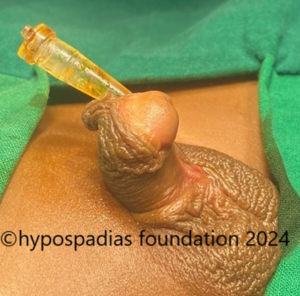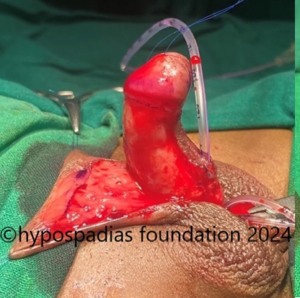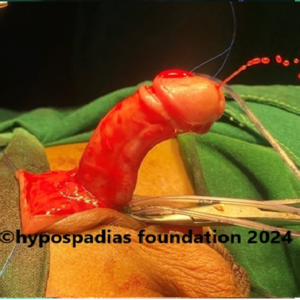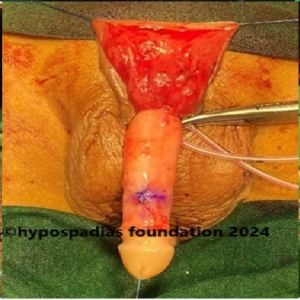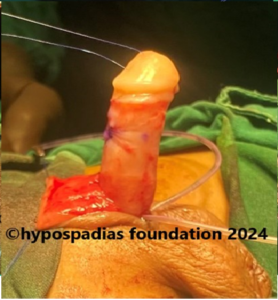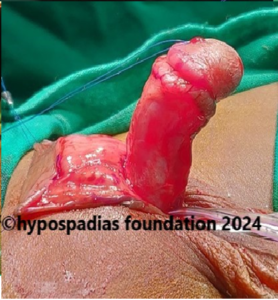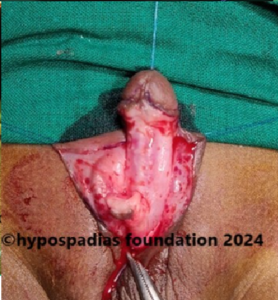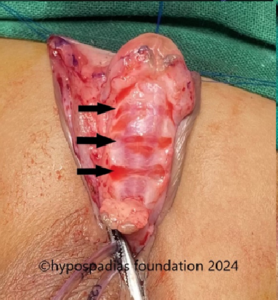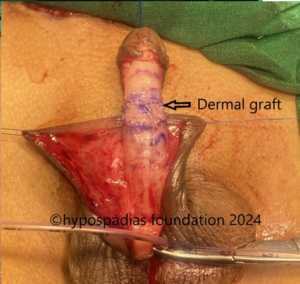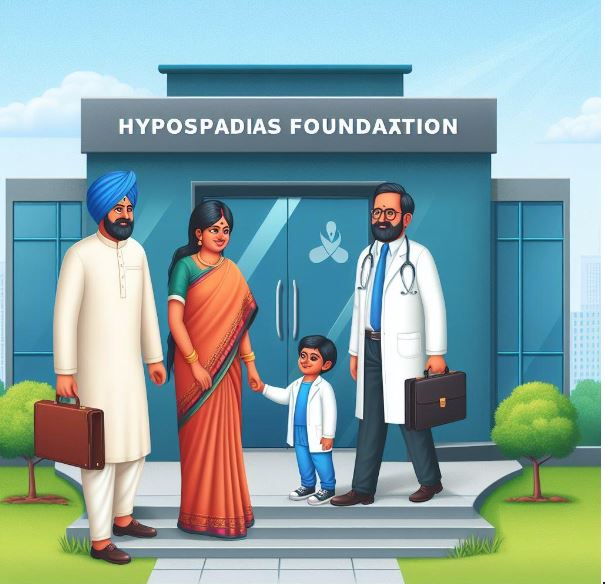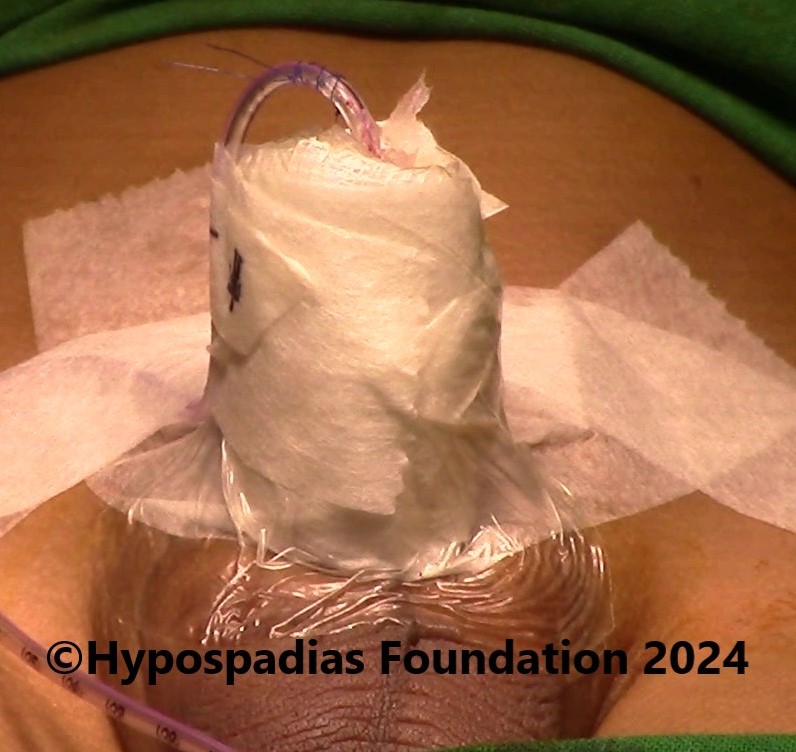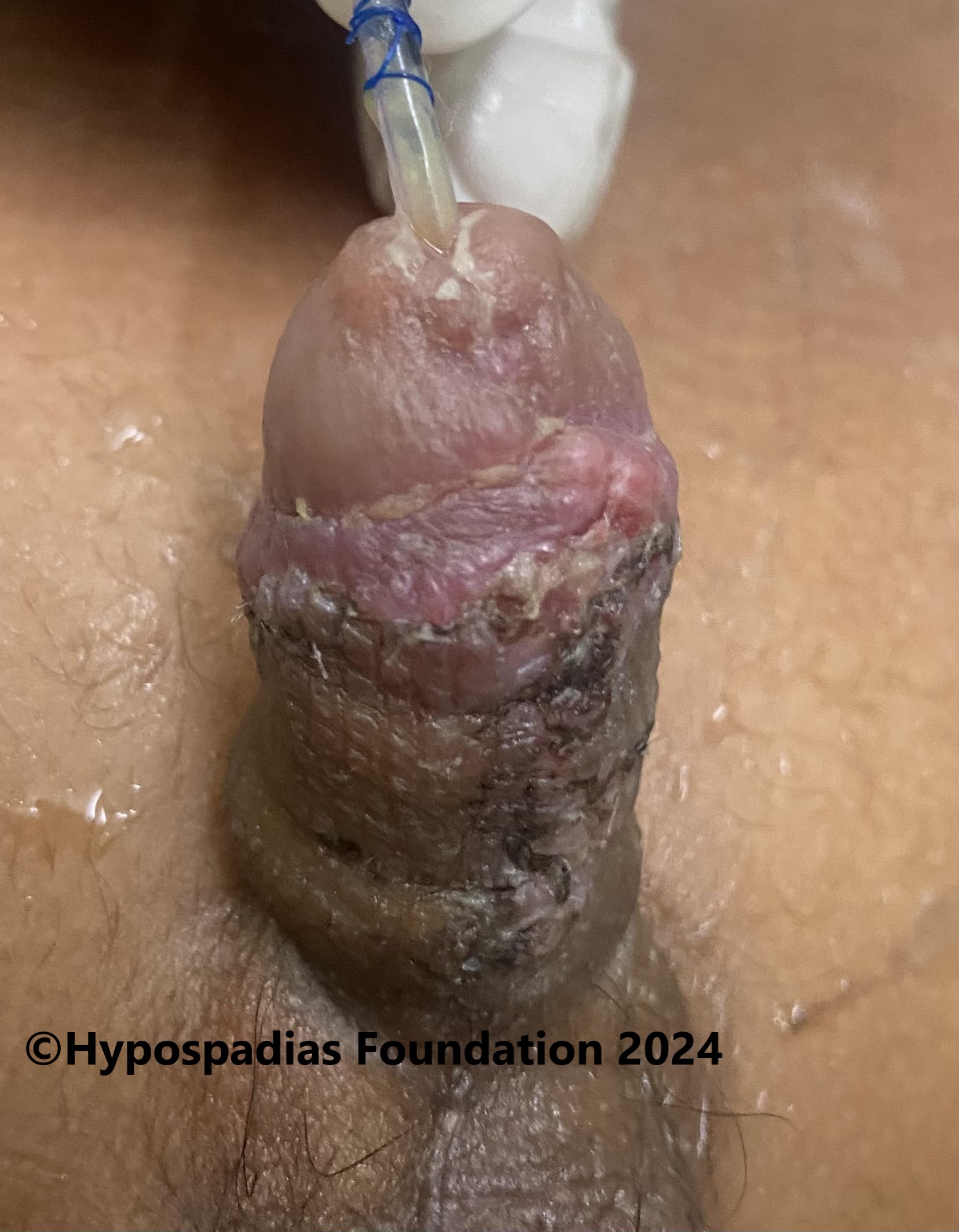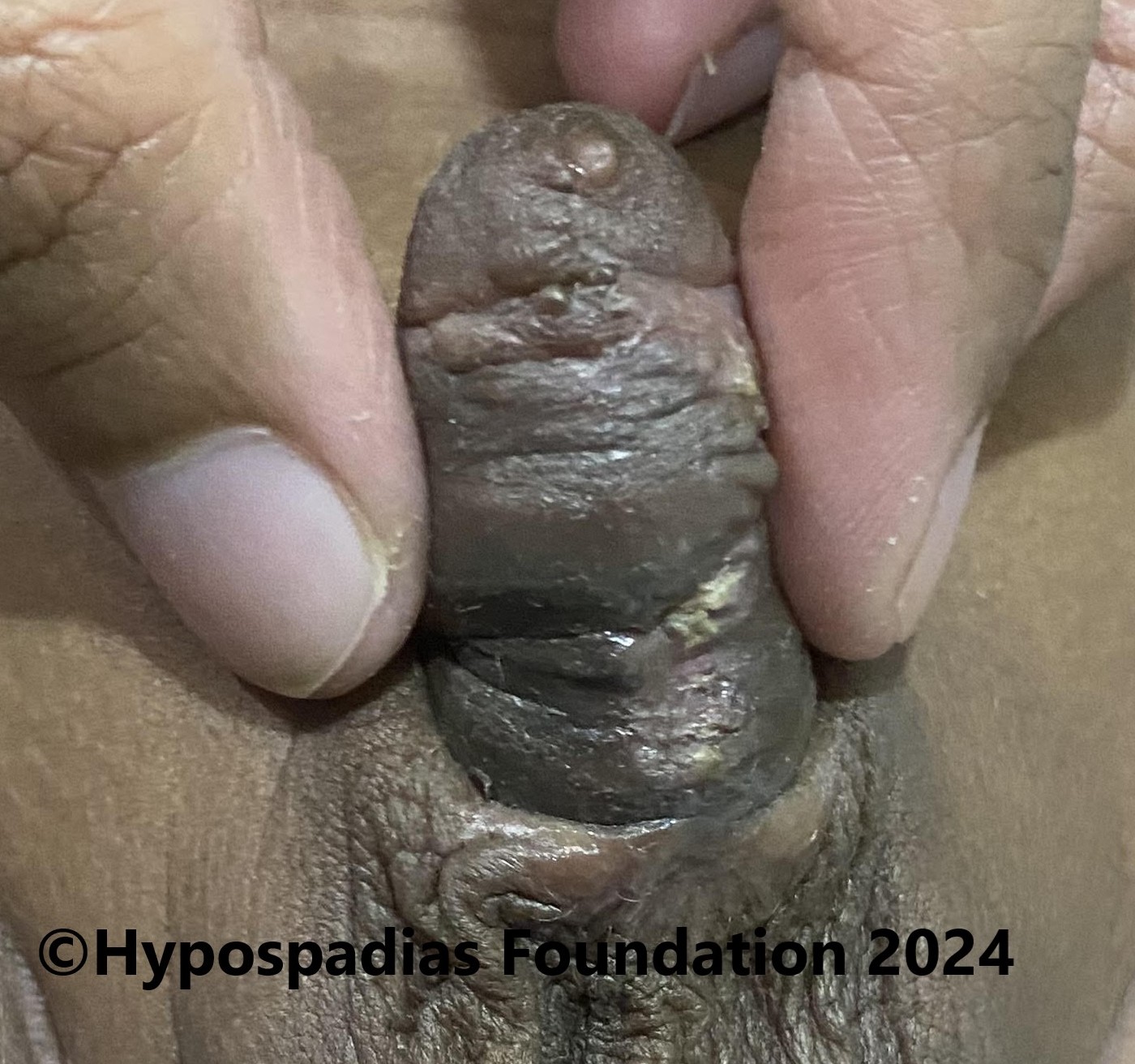Hypospadias surgery is a procedure to correct the opening of the urethra on the underside of the penis. It is one of the most common pediatric urological surgeries. Ensuring your child’s safety and comfort throughout the surgery is paramount. Anesthesia plays a crucial role in achieving this goal.
Types of Anesthesia for Hypospadias Surgery:
General Anesthesia: The most common approach, general anesthesia renders your child unconscious and pain-free. Medications are typically
administered intravenously (through an IV) or via inhalation through a breathing mask. The anaesthesia is usually short and there is no significant
effect on the child.
Regional Anesthesia: Regional anaesthesia is one which works only in the specific area of the body. The regional anaesthesia used in hypospadias
repair is a caudal block, an injection near the tailbone for targeted pain control. This caudal block gives good pain relief for six to eight hours and
sometimes even up to ten hours after hypospadias surgery. Older children may feel tingly and numb in the lower limbs and may find it difficult to walk till it wears off, usually within first 12 hours
Combined Anesthesia: Combining general and regional anesthesia offers the benefits of both: comprehensive pain management during surgery and a smoother recovery from general anesthesia.
The anaesthesia medicines chosen in children is such that there are minimal side effects and, we can resume oral intake as early as 1-2 hours after the hypospadias correction surgery.
Pediatric Anesthesiologists:
Anesthesia for hypospadias surgery is administered by a trained pediatric anesthesiologist, a medical doctor specializing in anaesthesia for infants and children and takes good care before, during, and after hypospadias repair surgery. They will meticulously assess your child’s health before hypospadias surgery, discuss anesthesia options, and choose the safest and most suitable approach for your child’s individual needs.
Communicate and Ask Questions:
Open communication with your child’s hypospadias surgeon & urologist and anesthesiologist is vital. Don’t hesitate to ask questions regarding the anesthesia plan and any concerns you may have. Feeling informed and involved in your child’s care can significantly ease anxieties.
At Hypospadias foundation, we have trained pediatric anesthesiologists who have managed more than thousands hypospadias correction repairs. From airway management, right medications to post operative pain relief we believe in a complete care of the child from pre surgery to post surgery. Safe and effective anaesthesia is necessary for good post operative recovery after hypospadias surgery.
Effective Pain Relief After Hypospadias Surgery
Pain relief is very important especially in a child because a cranky child makes the parents and the hypospadias surgeon anxious. After any procedure, it’s natural for your child to experience some discomfort but the discomfort should be manageable. Here’s a guide to effective pain relief after hypospadias surgery:
Doctor-Prescribed Medications:
Pain relievers: After surgery we prescribe pain medications, often starting with acetaminophen(paracetamol) or ibuprofen. The medicines must be given as advised because good pain relief means a comfortable child and in turn leads to good healing after hypospadias repair.
Antibiotics: To prevent infection, antibiotics are prescribed after hypospadias surgery. They must be continued till the catheter removal and
sometimes for a few days even after the hypospadias catheter is removed. Infection can destroy the entire hypospadias repair hence we need to be
vigilant and avoid infection at all costs.
Bladder antispasmodics: The presence of a urinary tube can cause urinary bladder contractions. The only way to manage this is by prescribing anti spasmodic medicines. Hence after hypospadias surgery till the catheter removal, the child will be on anti-spasmodic medicines.
Pain due to erection: Painful erections after hypospadias surgery occur in every child and are even more prominent in teenagers and adults. This pain can be quite bad due to swelling of penis and the presence of a urinary tube. Hence we prescribe a stronger painkiller diclofenac in the form of
suppository during these episodes of severe pain. This medicine gives good pain relief in times of extreme pain. For adults we also add more medicine to decrease painful erections at night.
At-Home Pain Management Strategies:
Positioning: Encourage your child to rest comfortably, positioning themselves to minimize tension on the surgical area. This can be lateral or
supine position with pillow support.
Distraction: Engaging your child in their favourite activities or games can help take their mind off any discomfort after hypospadias surgery
Loose Clothing: Tight clothing can apply pressure on the operated site and cause discomfort to the child. Opt for loose-fitting clothing made from
breathable fabrics to avoid irritation.
Dietary Adjustments: Prefer healthy nutritious food over processed food. Processed food does not have fibre and cause constipation in a child which in turn can cause bleeding at the operated site during straining. Maintaining hydration is also essential to prevent constipation.
Hygiene: Maintain proper hygiene around the hypospadias surgical site as instructed by your doctor. Change inner diaper frequently when dirty and be vigilant for soling of dressing. If dressing gets dirty at any point, do visit the hospital and get a hypospadias dressing change.
Activity Restrictions: Follow the doctor’s recommendations regarding activity levels to promote healing and prevent complications. Any vigorous
activities are generally avoided typically for 4-6 weeks after hypospadias surgery. Children can play at home and other board games comfortably.
Remember:
Consult your Hypospadias Doctor: If pain seems excessive or worsens, consult your child’s doctor for further evaluation and possible medication
adjustments.
Be Patient: Healing takes time after a hypospadias surgery. Be patient with your child and offer support throughout the recovery process.
At Hypospadias Foundation India, we have treated thousands of children and adults with hypospadias. Our approach to hypospadias repair includes
comprehensive care from preoperative to post operative period. Remember, every child heals at their own pace. By being prepared, informed, and supportive, you can help your child through this journey and ensure a successful recovery. Dr A.K.Singal and Dr Ashwitha Shenoy are rated as the best hypospadias surgeons in India. Their experience in the field of hypospadias makes them the best surgeons for hypospadias repair for both children and adults. If you need an opinion or consult us for your child, please do write to us at hypospadiasfoundationindia@gmail.com or fill up this contact form or visit us at the hospital.
Contact Form for Hypospadias Foundation
Please fill all clinical details and upload pictures and clinical summaries (if available)

